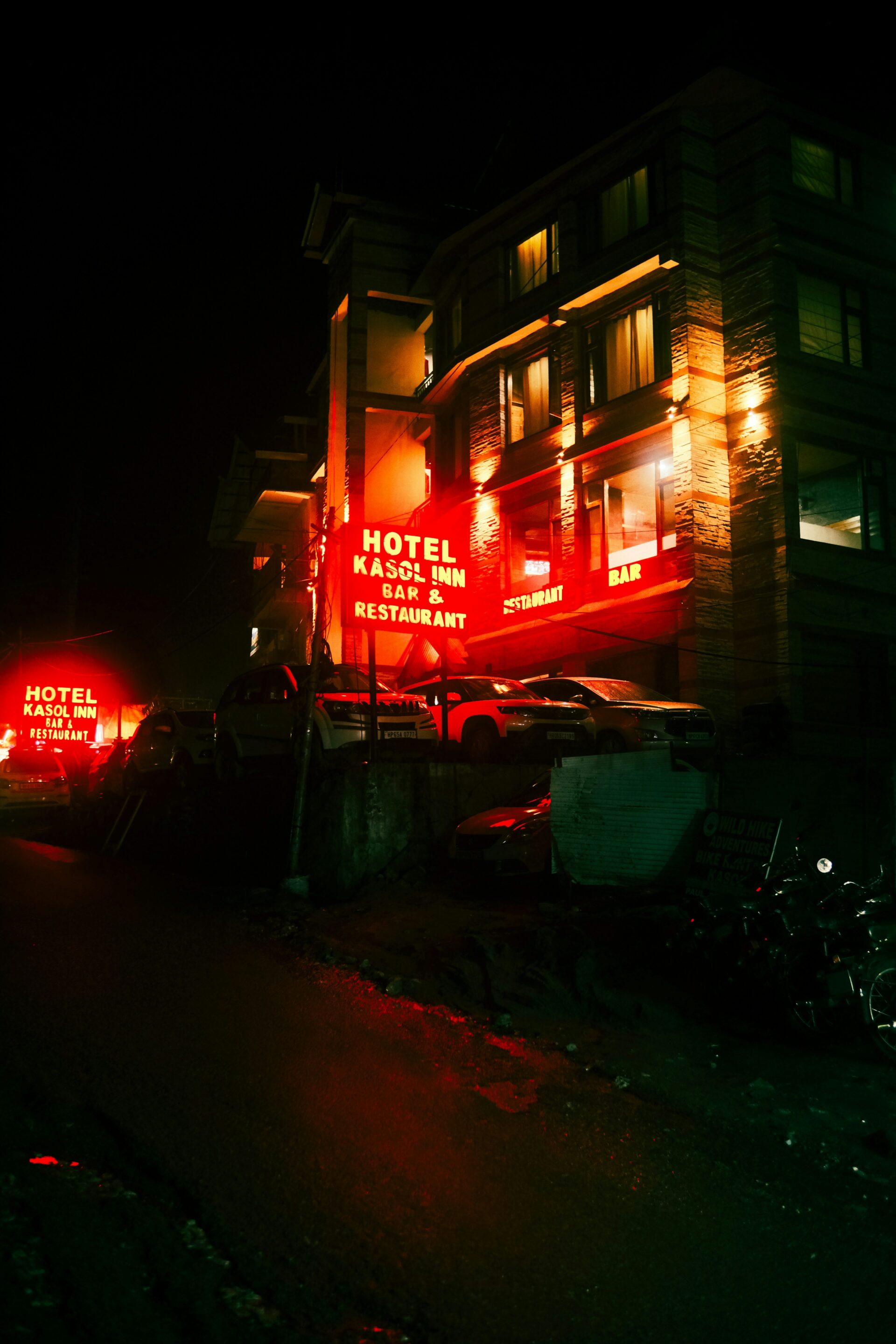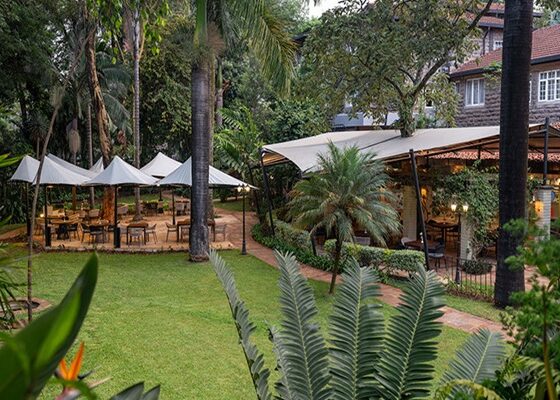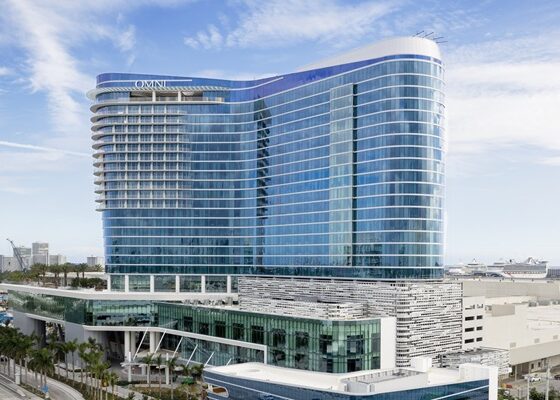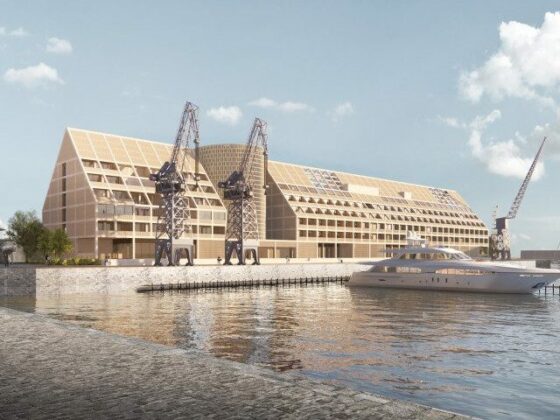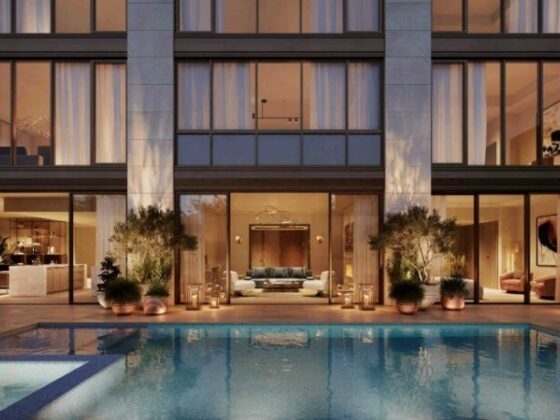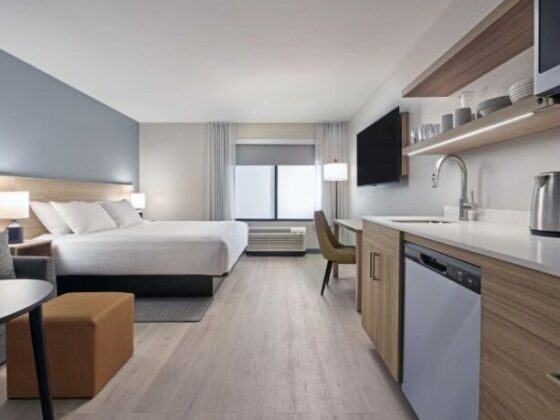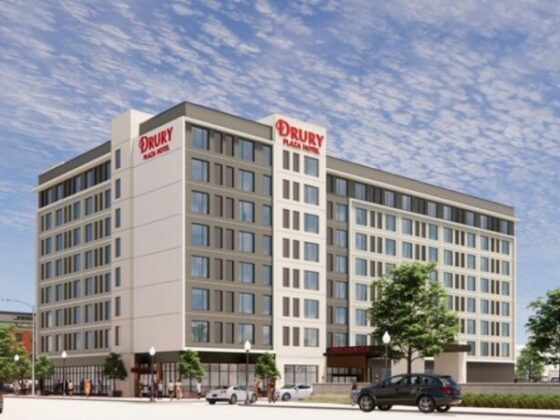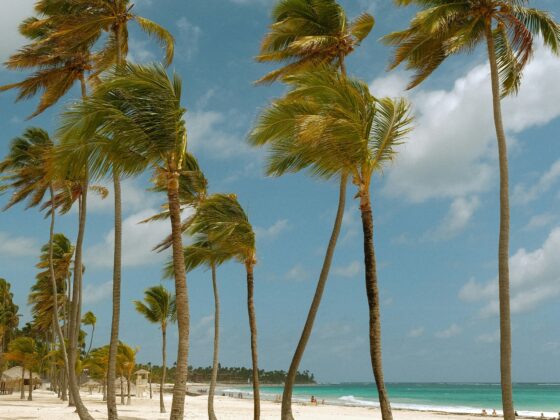In 2023, you announced your intention to double in size with the expected arrival of a new shareholder. This intention was renewed in 2024 with the ongoing acquisition process. Does Tristan Capital’s takeover mark the beginning of an accelerated development phase?
Development has already been accelerating for some time, and we owe this mainly to our customers. They appreciate the concept, which relies on basic essentials that we aim to make the best in the market: smaller rooms, but with better quality mattresses, better acoustics, better blackout curtains, excellent Wi-Fi, etc. Everything for a good night’s sleep, everything to explore the city. easyHotel is designed as a compact hotel, not seeking to offer a better bar than local bars, or a better pool than local pools, etc.
Our ratings and customer reviews are consistently increasing across all platforms. This essentially means that the concept is meeting its audience. First point. The second point is that by opening more hotels across Europe, the network effect works beyond the brand recognition we inherently have through our association with the easy family.
Do you think you have reached critical mass in your priority European markets?
Three years ago, more than two-thirds of our revenue came from the UK. Now, it’s the opposite—two-thirds of the revenue is generated outside the UK. I am particularly pleased, in recent years, to have demonstrated the market’s appetite for this kind of concept. We recently opened in Madrid. We are about to open a second hotel in Barcelona, and a first one in Valencia. Our presence in Spain is starting to show after our presence developed in France.
Now, two-thirds of the revenue is generated outside the UK. I am particularly pleased, in recent years, to have demonstrated the market’s appetite for this kind of concept.
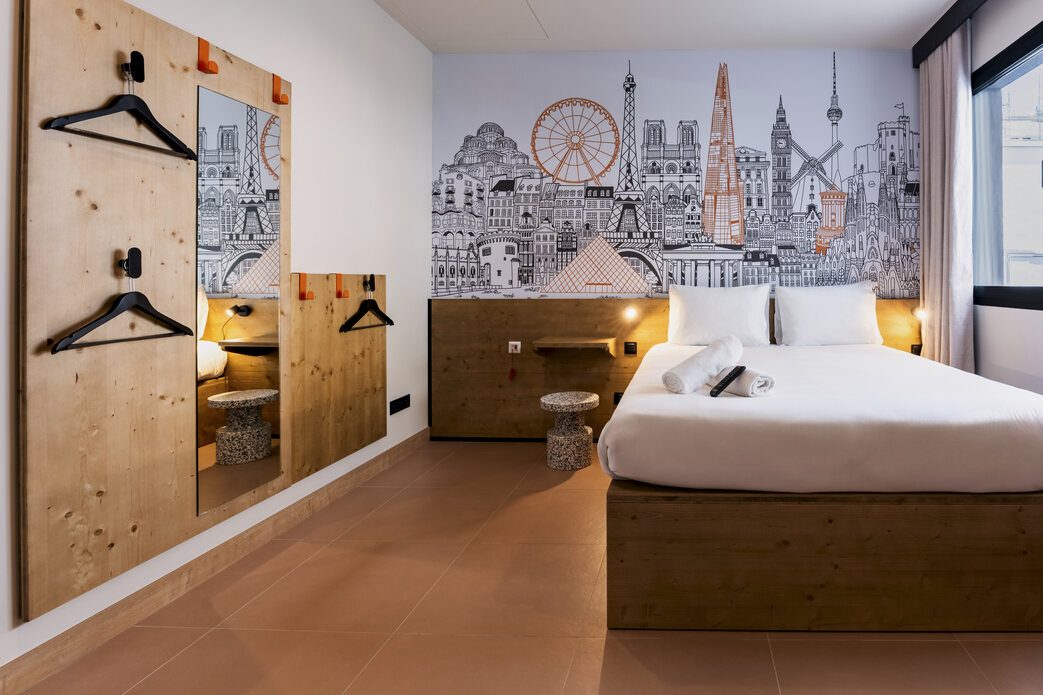
Returning to the concept, which is resolutely budget-focused, do you consider yourselves in competition with the “new” youth hostels?
At this point, we are clearly in the hotel sector, with real showers in the rooms. We can be compared to the new hostel model in terms of the efficiency sought in square meters. Everything fits into 20 m² per room, including common areas. The design is made to use as few square meters as possible. On the other hand, we avoid having unnecessary services. No services we consider superfluous in the common areas. So, no spa, no pool, a breakfast room that’s the right size, but no restaurant, a simple reception, no bar, etc. We believe that the sought-after location offers all these services nearby or is very well connected by bus or subway.
Is there a real connection with the easy family, driven by easyJet?
Yes, absolutely. There is a real lineage, both in the brand’s DNA and in the experience offered. If you take an easyJet flight, you will see businesspeople at the front, followed by a football team, a group of retirees, a bunch of friends on a stag do, families, individual tourists… This mix of profiles, this diversity of travelers, is found at easyHotel.
We welcome a very varied clientele: international, local, and even ultra-local. On average, one-third of our customers travel for business, and two-thirds for leisure. It’s a similar snapshot to an easyJet flight. We share the same philosophy: making travel accessible, simple, without frills but with everything needed. Practical, democratic, and open to all, the easy brand has managed to create a true community spirit—and easyHotel fully aligns with this logic.
What brings them together, and how do you communicate with such different targets?
I believe there are three main groups with similar motivations that unite them. For the most part, these are customers who deliberately decide not to spend too much on their accommodation, choosing to allocate their budget to exploring the city and its activities. It’s understandable when certain activities, concerts, outings, and sports events are expensive.
You seem to be in contradiction with the hospitality industry discourse, which emphasizes the experience to be fully lived at the hotel. What are your thoughts on this, and the potential risk of disaffection for traditional budget hotels?
I spent ten years in a major French hotel group, so I’m very familiar with the discourse around luxury and lifestyle. There are naturally different segments for different types of customers. But I’ve never been interested in having a bike on the wall. What interests me is riding a bike in the city. I think cocktails are better in an authentic bar than in a hotel bar where they try to make the bartender look like a hipster.
My observation is that we are gaining market share in all locations where we are present, with great customer feedback. And not to mention, our financial results are better as well. I don’t see any disaffection in terms of occupancy rates or average room prices in budget hospitality, as long as it’s well located in the city. Out of our 50 hotels, 48 are less than five minutes from urban transport. We are far from old-school “budget” hotels.
I think cocktails are better in an authentic bar than in a hotel bar where they try to make the bartender look like a hipster.
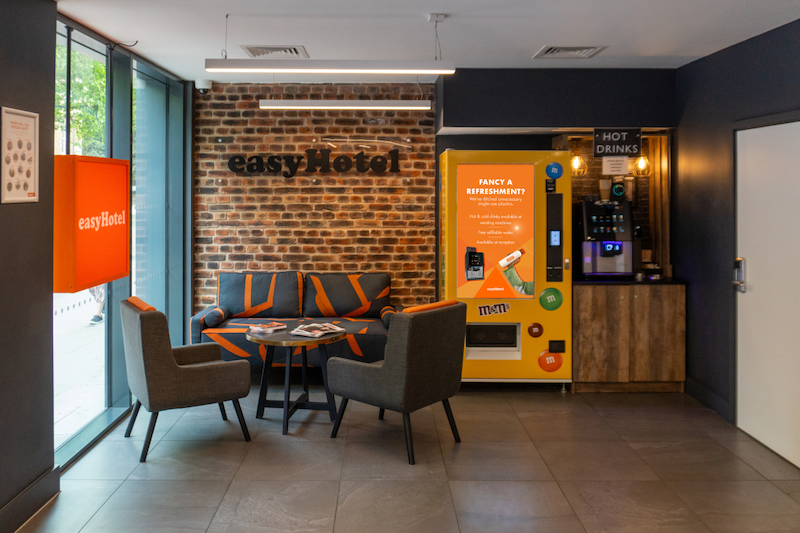
Let’s revisit the common characteristics of all your customer segments…
The second element is rational. These are clients with a limited budget who are struggling to cope with the prices in Madrid, Barcelona, Amsterdam, London, or Paris right now. It’s very difficult to find a hotel room at a fair price, especially during high season.
The third motivation is a certain awareness of essentials. We address those who appreciate a clear, simple, and efficient offer. We’ve made sure that booking is as simple as ordering an Uber. We also emphasize simplicity in services, such as decoration. It’s part of our CSR commitment.
Returning to development objectives, according to recent statements, you’re talking about doubling or even tripling your footprint in the long term. How does your new shareholder see things?
We do not announce a magical number of hotels. Our focus is more on capacity. Our new shareholder, Tristan Capital Partners, has clearly expressed the desire to build or convert larger hotels. What works well with 50 to 70 rooms could work even better with 120, 150, or 200 rooms. We will focus on bigger projects and move towards larger cities than in the previous strategy. We will have fewer hotels than originally planned, but probably as many rooms. We will likely be more selective in terms of locations, cities, and countries.
Is the strategy focused on deepening your presence in already established countries, like Spain, Portugal, or the Netherlands? Or do you need to go into new territories?
We are finalizing the strategic plan with Tristan. The goal is to strengthen, like everyone else, in Spain, expand our network in France, open Portugal, and also densify the countries where we are already very present, like the UK, Ireland, the Netherlands, and Belgium. I’m referring to the hotels we fully own. We are present in 11 countries, including Germany, and we are closely monitoring franchise developments.
Do you fear arriving at the same time as all the other groups that have identified the same target countries?
We had somewhat anticipated the success of Spain because it was an important country with a domestic market and a large tourism market in parallel. Our openings are following one another. We just opened in Madrid, I’m about to inaugurate Barcelona, Valencia, and then Alicante next year. So, we’re starting to build up a serious critical mass in Spain, which will allow us to expand both with owned properties and franchises.
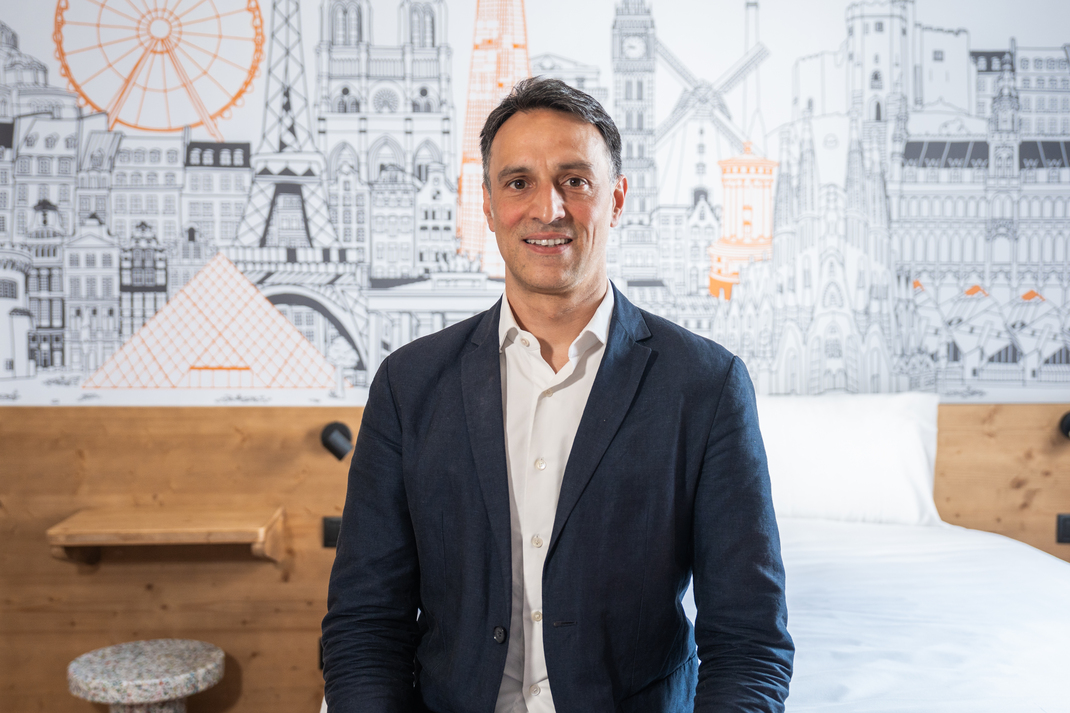
We are present in 11 countries, including Germany, and we are closely monitoring franchise developments.
Is Italy on your radar?
Italy is complicated from a process standpoint, and rooms are also a bit larger in general. This requires some adjustments for budget hotels. Some have succeeded very well there, so there’s no reason why we can’t succeed as well. It’s one of our shareholder’s long-term targets, perhaps starting with an acquisition.
Given the difficulty of creating new offers due to challenges in finding land, regulations, or financing issues, will you also turn to conversions?
It’s indeed an interesting approach because our concept is based on having the best “basics,” but ultimately the shape of the room or the layout of the common areas doesn’t matter. If we remain strict about the basics, we can be very flexible on certain criteria, which makes conversions easier.
There won’t be a systematic search for new builds…
No, it won’t be systematic. The model works, it meets the public, and it’s financially very viable. We want to develop many more hotels, and to do that, we’ll need both new builds and conversions. We’ll need to consider all types of contracts in the different countries. Our shareholder, who is a real estate fund, will also want to acquire the buildings.
The model works, it meets its public, and it’s financially very viable.
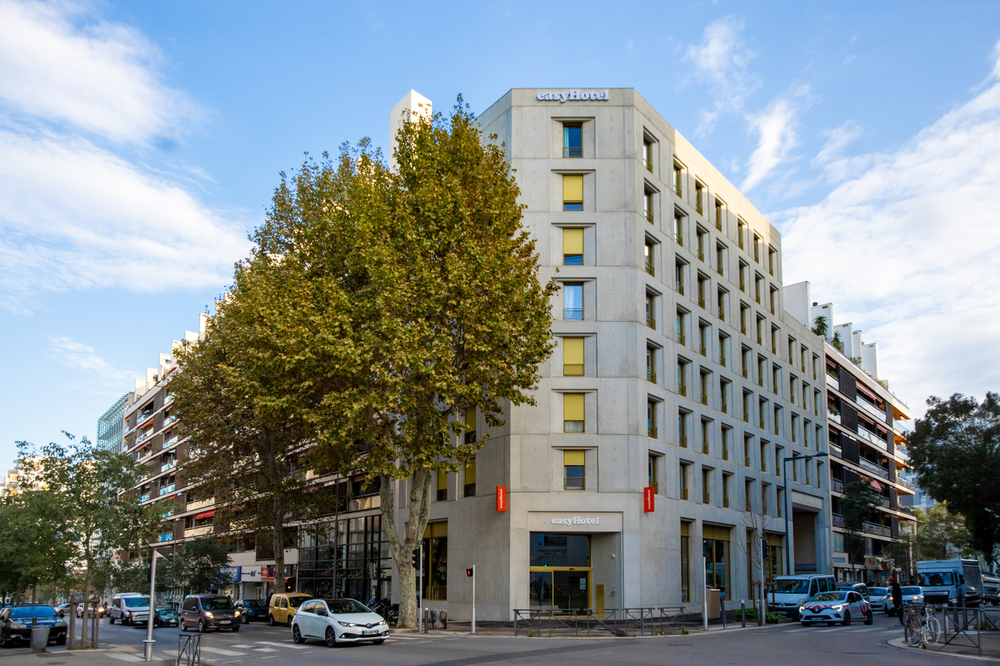
easyHotel has actively promoted its efforts to reduce its carbon footprint. Could you provide more details on how these initiatives translate into the customer experience and daily hotel operations?
easyHotel is actively reducing its carbon footprint by making tangible changes in both the design and operation of its hotels, whether owned or leased. The hotels we build directly follow our new low-carbon design standards, emitting 39% less CO₂ over a 50-year life cycle compared to competitors. We also financially support our commitment to reducing carbon emissions by investing around €7 million in the modernization of 21 properties. This investment puts us up to 10 years ahead of the CRREM targets.
Operationally, we have eliminated single-use plastics in guest areas, replaced plastic key cards with wooden cards, and implemented smart energy systems. All these changes allow us to offer a comfortable and affordable stay while reducing our environmental impact.
Let me know if you need any further revisions!


